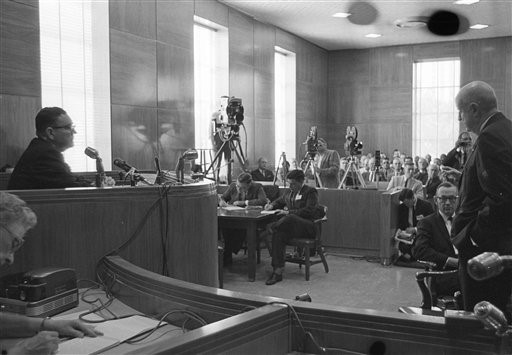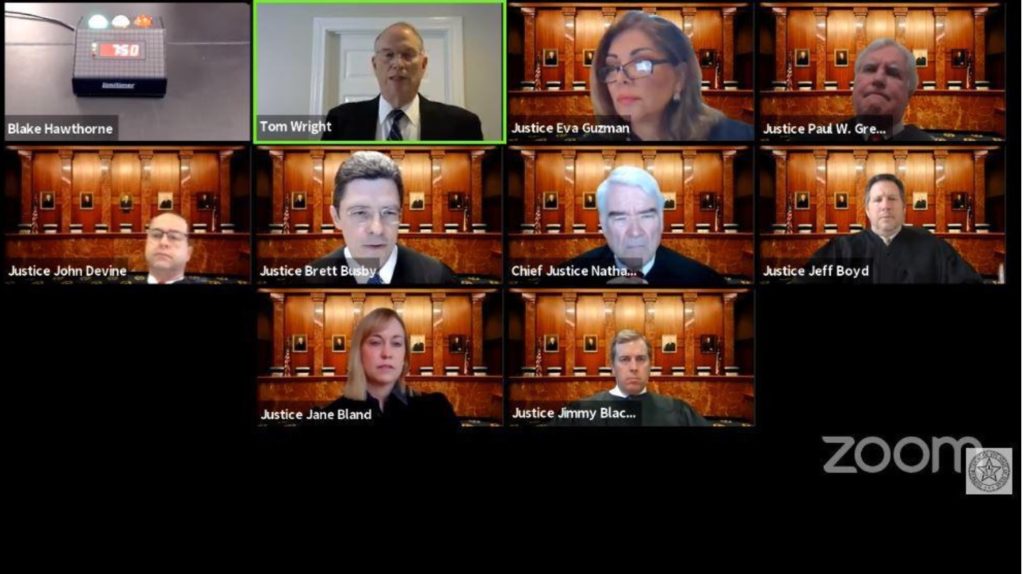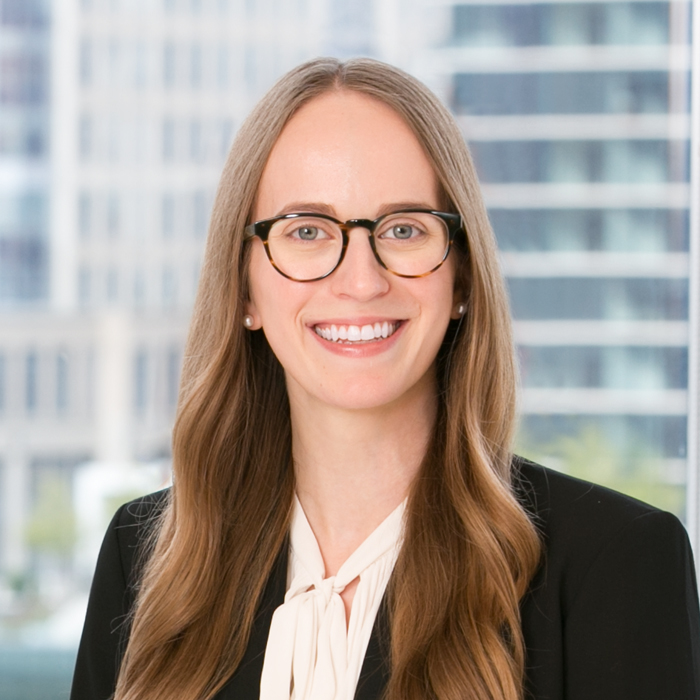By James McFall, Brian Oates, & Maggie Burreson
In Estes v. Texas, 381 U.S. 532 (1965), the Supreme Court overturned the fraud conviction of Billy Sol Estes, a political operative for Lyndon B. Johnson, holding that the allowance of cameras in the courtroom and televised legal proceedings deprived Estes of his right to a fair trial. Although the Court recognized that future technological advancements could make cameras less disruptive, the Court held that the presence of more than 10 large, bulky 1960s-era cameras and the mass of wires and personnel required to operate them had so disrupted the proceedings that Estes was deprived of the right to a fair trial.

In the years following the Estes decision, Texas criminal and civil courts, and indeed many courts throughout the nation, generally restricted televised access to judicial proceedings. First Amendment scholars and commentators have criticized those prohibitions, contending that cameras in the courtroom are a necessary and cost-effective means of ensuring public access to and transparency in judicial proceedings. The ability for individuals to view and access court proceedings, even during a global pandemic, is a protected right. The First Amendment ensures public access to certain court proceedings. The Texas Constitution provides that “[a]ll courts shall be open, and every person for an injury done him, in his lands, goods, person or reputation, shall have remedy by due course of law.” Tex. Const. art. I, § 13.
Texas Rule of Civil Procedure 18c governs the use of cameras, recording devices, and broadcasting devices in Texas civil proceedings. Federal Rule of Criminal Procedure 53 generally prohibits the use of such devices in federal criminal proceedings. While no Federal Rule of Civil Procedure governs the use of such devices in civil proceedings, federal courts have been overwhelmingly reluctant to allow such devices. Where the use of cameras, recording devices, and broadcasting devices is allowed, the rules leave decisions regarding their use to the broad discretion of the trial court judge. Many judges have allowed for only limited use of cameras in the courtrooms.
The COVID-19 pandemic has caused courts to drastically shift their rules regarding cameras and other recording devices in the courtroom. As shelter-in-place orders were issued in cities throughout Texas, and the Governor ordered residents to stay home except for essential activities, courts could not continue business as usual in terms of in-person proceedings. As a means to allow continuing access to the courthouse, Texas courts began transitioning to remote proceedings in mid-to-late March, utilizing Zoom and other digital platforms to hold hearings and conduct court business. Courts also began using their own YouTube channels, whereby the public could live stream court proceedings.
Although many in the legal profession expressed skepticism and concern about transitioning to remote platforms for hearings, early ”test drives” have gone smoothly. For example, on March 31, 2020, the 303rd District Court in Dallas County conducted a full bench trial. The Texas Supreme Court made history on Wednesday, April 8, 2020, when it held oral arguments in three cases on Zoom, with the justices each sitting in their home offices wearing robes with a virtual background of their courtroom.

The number of courts that are offering YouTube channels for live streaming proceedings is so extensive that the Texas courts’ website now provides a YouTube Channel Directory with links.
Jackson Walker litigators have already participated in a number of hearings throughout the state on Zoom, including temporary restraining orders, summary judgments, and other important motions. An example was a hearing in which Dallas litigator Brian Oates participated on April 2, 2020. Jackson Walker’s client had initiated a lawsuit seeking the partition by sale of nearly 2,000 acres in Mitchell County, Texas. The numerous parties and interested individuals, attorneys, and witnesses were located all over the state, including several that were more than a five-hour trip from the courthouse. But because of COVID-19, the court converted the hearing to the Zoom platform. The court provided (1) the access code for its Zoom meeting space for video conference participation, (2) its telephone conference line for those who could only participate by telephone, and (3) its YouTube channel that would broadcast the hearing live.
All of the participants in the hearing were in different locations, except for the Judge and the court reporter who were both in the Judge’s chambers, but were practicing social distancing. The hearing proceeded without any issues. Ultimately, the court ruled in Jackson Walker’s client’s favor.
While this new change has allowed court access during an unprecedented crisis, it is unlikely to be a total replacement for in-person access to the courts; nor should it be. These new technologies, if implemented post-pandemic, should be used in ways that complement—instead of replace—“traditional” concepts of access to the courts.
Justice Harlan observed in his concurring opinion in Estes that, “the day may come” when television and broadcasting technologies “will have become so commonplace an affair in the daily life of the average person as to dissipate all reasonable likelihood that its use in courtrooms may disparage the judicial process.” Videoconferencing and streaming technologies have enabled the judicial system to function during the COVID-19 pandemic. Given the courts’ successful “test drive” of these new technologies, they may be utilized more in the future.
 Meet James
Meet James
James Carlos McFall’s practice focuses on media, sports, entertainment, and complex commercial litigation, including cases of alleged fraud, tortious interference, breach of contract, breach of fiduciary duty, and theft of trade secrets. James is experienced in all phases of litigation from investigation to trial, including depositions, preparing fact and expert witnesses to testify at trial and in depositions, arguing various evidentiary and dispositive motions, and making the opening statement and closing arguments to juries. In other First Amendment media, and entertainment litigation, James has represented television networks, newspapers, journalists, internet publishers, film directors, and producers in cases of libel, defamation, and misappropriation of likeness in California and Texas. He has significant experience litigating disputes and arguing motions under the journalist’s shield law, the federal Freedom of Information Act (FOIA), state open records and meetings laws, and state anti-SLAPP statutes.
 Meet Brian
Meet Brian
Brian H. Oates is a trial attorney who has practiced in state and federal courts throughout the United States and has significant experience with various forms of alternative dispute resolution. Brian’s practice includes all aspects of commercial litigation, including infringement of intellectual property, construction disputes, and other high-stakes commercial disputes. Brian has assisted clients with trademark registration, protection, licensing, cease and desist, and infringement matters, including representing clients in adversary proceedings before the Trademark Trial and Appeal Board. Brian also has experience representing oil and gas companies in a variety of contexts, including disputes involving energy related agreements.
 Meet Maggie
Meet Maggie
Maggie I. Burreson is a litigation attorney with experience assisting attorneys in legal research, drafting and reviewing legal memoranda, and assisting in drafting pleadings. Before law school, Burreson developed her interest in First Amendment law as an intern for the Baptist Joint Committee in Washington, D.C., where she assisted in conducting research for amicus curiae briefs and tracked national and state legislation affecting religious freedom.
Related Resources:
Please note: This article and any resources presented on the JW Coronavirus Insights & Resources site are for informational purposes only, do not constitute legal or medical advice, and are not a substitute for legal advice from qualified counsel. The laws of other states and nations may be entirely different from what is described. Your use of these materials does not create an attorney-client relationship between you and Jackson Walker. The facts and results of each case will vary, and no particular result can be guaranteed.





